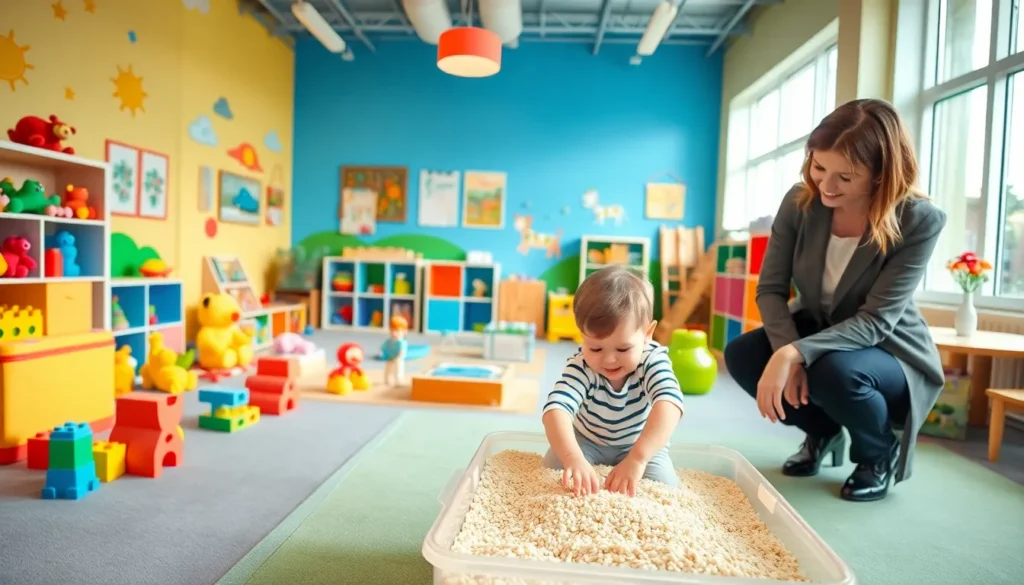Picture this: You and your ex are like oil and water, constantly clashing over everything from playdates to pizza toppings. High conflict co-parenting isn’t just a headache: it can feel like trying to teach a cat to fetch. Yet, amidst the struggles, there’s hope. This article dives into the nuances of high conflict co-parenting, providing insights that can lead to a more peaceful parenting partnership. So, buckle up and let’s explore how to turn those turbulent waters into a smoother sea for you and your children.
Table of Contents
ToggleUnderstanding High Conflict Co-Parenting

High conflict co-parenting emerges when parents cannot agree on essential aspects of raising their children. The tension often stems from unresolved issues related to the breakup, communication breakdowns, or power struggles. It’s like trying to walk a tightrope without a safety net: one misstep and everything could come crashing down.
Understanding the dynamics of high conflict environments is crucial. They often involve frequent disagreements, hostility, and a lack of cooperation. These situations can be emotionally draining, taking their toll on both parents and children. Recognizing the signs is the first step towards finding effective solutions.
Characteristics of High Conflict Co-Parents
High conflict co-parents exhibit specific characteristics that define their interactions. They often struggle with poor communication, leading to misunderstandings and frustration. It’s common for them to engage in blame-shifting, making it challenging to resolve disputes amicably.
Another typical trait involves a strong need for control. This can manifest as one parent consistently undermining decisions made by the other. Also, these parents might involve their children in conflicts, making them feel caught in the middle. This pressure can leave children feeling confused and anxious.
Impact on Children in High Conflict Situations
Children caught in high conflict situations often experience significant emotional distress. Research indicates that exposure to parental conflict can lead to problems such as anxiety, depression, and difficulties in social relationships. It’s not just about the fights: children absorb the tension and may internalize it.
Also, they might find themselves acting as mediators, trying to soothe their parents and maintain peace. This role reversal shifts the responsibility from parents to children, which can be extremely damaging. Eventually, the impact of high conflict co-parenting can hinder a child’s development and sense of security.
Strategies for Managing High Conflict Co-Parenting
Managing high conflict co-parenting requires intentional strategies designed to minimize conflict. First, establishing clear communication channels is essential. This can include using a parenting app or even designated times for discussions, allowing for structured dialogue without emotional flare-ups.
Setting firm boundaries helps maintain a healthy co-parenting relationship. Each parent should respect the other’s decisions about parenting styles and routines. Also, focusing on the children’s best interests can serve as a guiding principle. When disagreements arise, reminding one another of the shared goal of raising happy and healthy children can help defuse tension.
Another effective strategy involves keeping interactions brief and solution-oriented. Avoid discussing past grievances and concentrate on finding solutions to current issues. This straightforward approach can streamline conversations and reduce emotional escalation.
When to Seek Professional Help
Knowing when to seek professional help is vital in high conflict co-parenting situations. If communication has deteriorated to the point of screaming matches or if one parent feels bullied, therapy can provide a much-needed space to unpack these issues.
Family mediation is another option worth exploring. A neutral third party can help help discussions and keep conversations focused on the children’s welfare. If the conflict persists and affects the children’s emotional health, consulting with mental health professionals can provide valuable insights and coping strategies for both parents and children.
Legal Considerations in High Conflict Co-Parenting
Navigating the legal landscape is often crucial in high conflict co-parenting. Knowing the rights and responsibilities of each parent helps to establish clear boundaries and avoid unnecessary conflicts. In some cases, a formal custody agreement may be beneficial to delineate expectations.
Also, it’s essential to document all interactions, especially incidents involving conflict. Keeping records can provide a basis for legal advice if disputes arise. Working with a legal professional who specializes in family law can help parents understand their options and ensure that their co-parenting arrangement aligns with both their needs and their children’s best interests.




